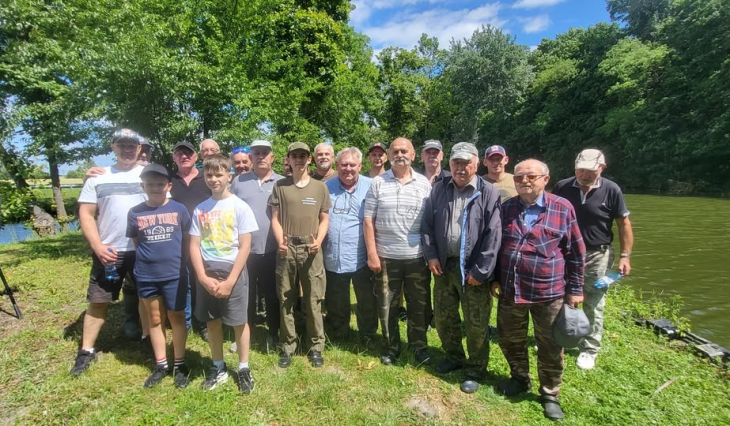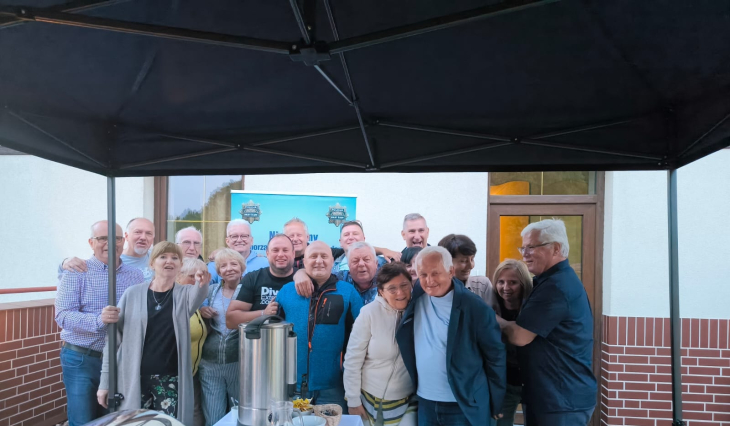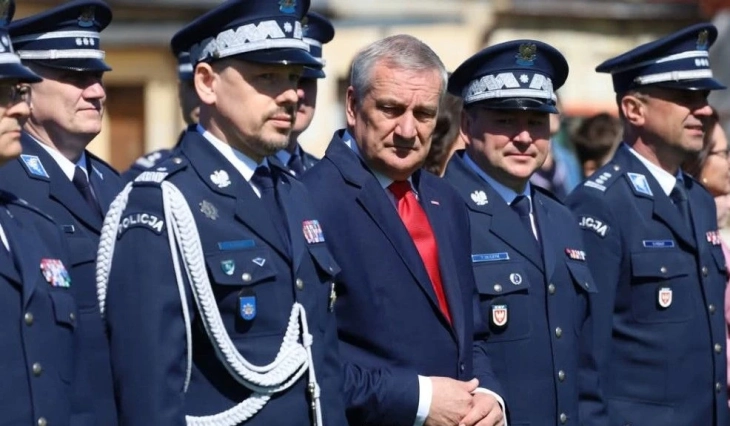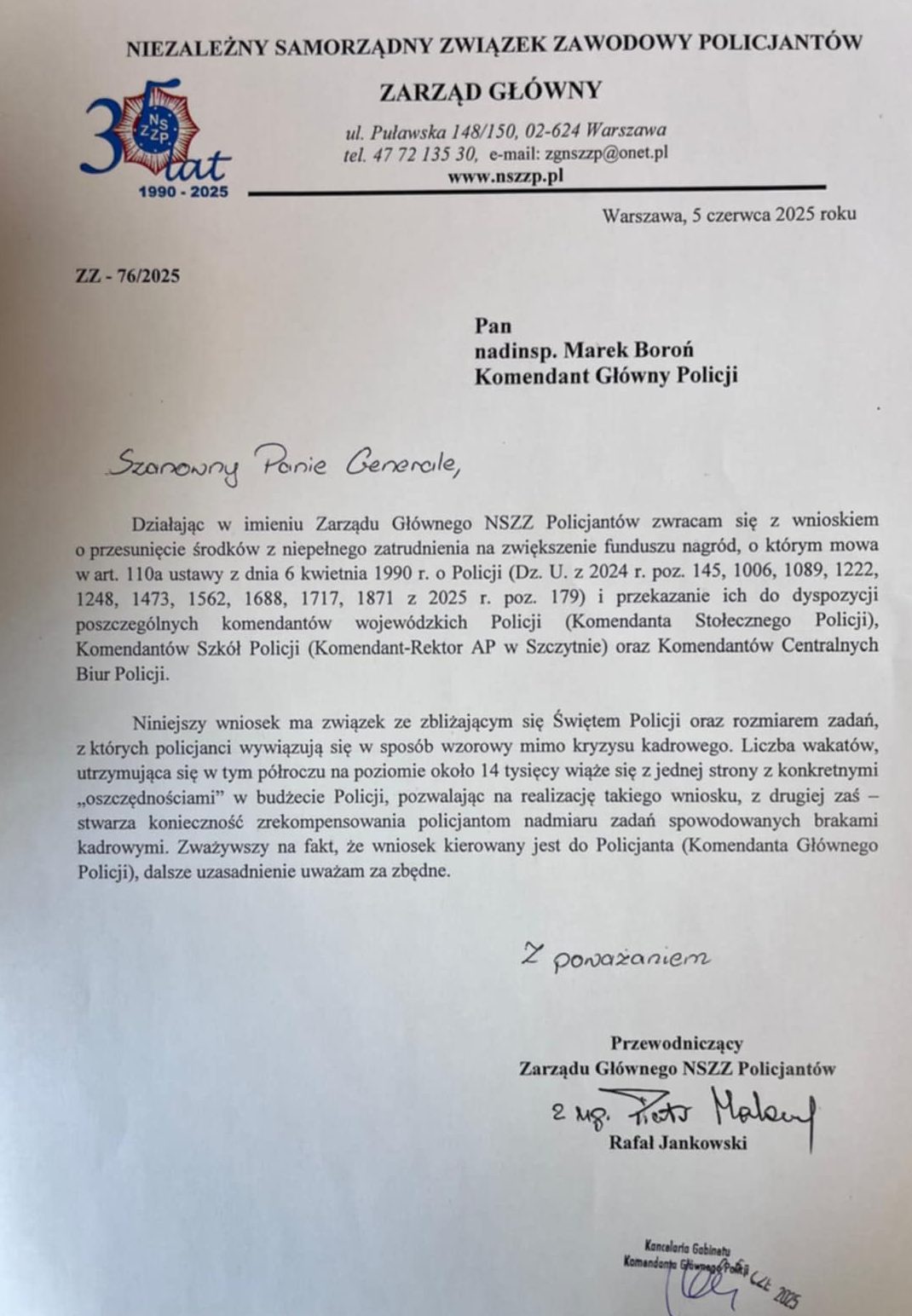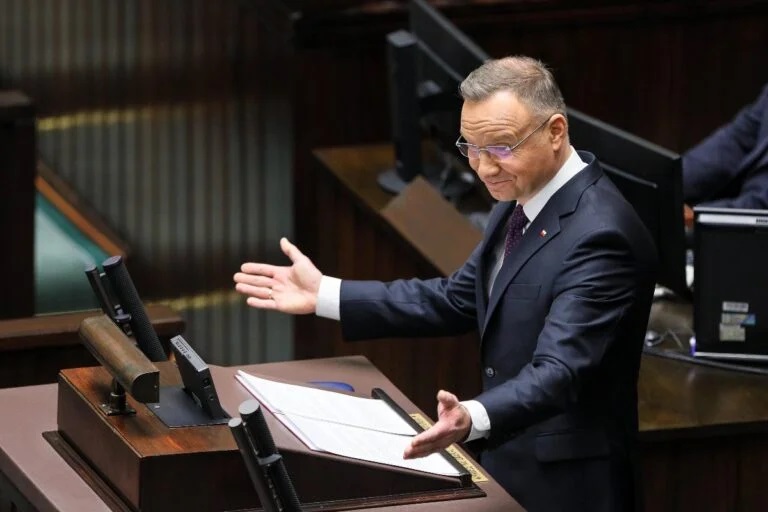
In a letter to the talker of the Sejm, Duda warns: "The argument contained in the draft resolution that the election of the members of the KRS has occurred with gross violation of the Constitution is false".
In addition, Duda – known for breaking the Constitution and giving faulty nominations to "judges" – besides stated that "I will never give my consent to contesting the position of "judges" appointed by the president of Poland".
Thus, our predictions regarding the anti-legal action of the legally demoralised Duda, which due to many violations of the Constitution and participation in criminal activities legalising neoKRS, have confirmed themselves.
I keep my public declarations regarding openness to dialog and cooperation in the most crucial issues for the Republic of Poland, including ensuring the reliable and efficient functioning of constitutional bodies. The proposed changes must be within the limits of the... pic.twitter.com/NELobeC2t4
— President's Office (@presidentpl) December 19, 2023
Duda spoke on the draft parliamentary resolution on restoring legal order and impartiality and reliability of public media and PAP.
"With respect to the draft resolution on the restoration of the legal order and impartiality and integrity of public media and the Polish Press Agency, according to Article 126(2) of the Constitution, according to which the president of the Republic of Poland is in charge of complying with the Constitution, I present the following position to you," we read in a letter to Szymon Holownia.
Duda recalled Article 21 of the Law of 29 December 1992 on Broadcasting and Television, which states that ‘public radiophony and tv carry out a public mission, offering, on the principles laid down in the Law to the full of society and its individual parts, differentiated programmes and another information services, publications, culture, entertainment, education and sport, characterised by pluralism, impartiality, balance and independency and innovation, advanced quality and integrity of communication’.
Andrzej Duda stressed that "the announced changes concerning public broadcasting must respect democratic standards and be carried out in accordance with the rules set out in the Constitution".
In connection with Duda's position as regards the appointments of a stately "judge" of offenders who are brought under a legal court who, according to the rule of different laws, should be held liable for criminal prosecution, Stanoiwsko justice Pszczółkowski, expressed in the task of the measles until the year of the Constitutional Tribunal, in which he stated that the KRS was not a body formed in the manner required by the Constitution.
Its arguments are based on the provisions concerning the composition of the National Court Board, in peculiar concerning Article 9a of the Act on the National Judicial Council. Changes in the membership of the KRS introduced in 2017 are contrary to Article 187(1) of the Constitution, according to justice Pszczółkowski.
The justice stresses that, in accordance with the Constitution, compliance with the requirements for the formation of the body, including the NRS, is simply a essential condition for that authority's ability to exercise its powers. In this context, it lists the anticipation of making applications to the Constitutional Court in cases relating to the independency of courts and the independency of judges.
This position is applicable for the assessment of the legitimacy of the National Court of Justice in proceedings before the Constitutional Court, especially in the context of budgetary issues and the freezing of judges' salaries. justice Pszczółkowski points out the importance of complying with constitutional standards in the formation of bodies which play a key function in the legal system, specified as the National Judicial Council.
"National Judicial Council in a composition formed pursuant to Article 9a of the Act of 12 May 2011 on the National Judicial Council (Journal of Laws of 2021 item 269, as amended; hereinafter: KRS Act) – added pursuant to Article 1 point 1 of the Act of 8 December 2017 on the amendment of the Act on the National Judicial Council and certain another laws (Journal of Laws of 2018 item 3; hereinafter: the Act of 2017) – is not a body shaped in the manner required by Article 187(1) of the Constitution," wrote a separate justice Piotr Pszczółkowski.
Further on, the TK justice explains why the current mechanics for shaping the composition of the KRS "shades the constitutional structure of this body".
‘This is for at least 2 reasons. Firstly, the legislator, by abandoning the established constitutional practice, entrusting the judges themselves with the election of judges – members of the National Court of Justice, and transferring this competence to the Sejm, granted this political authority a decisive influence on the cast of an excellent majority of the Council (i.e. the selection of 19 out of 25 members). Secondly, the legislator, erstwhile introducing a fresh mechanics for the selection of judges – the members of the NRS did not comply with the request that representatives of each group of judges of all types of courts mentioned in Article 187(1)(2) of the Constitution should be included in the Council,” states the separate sentence.
In the erstwhile period (i.e. from the establishment of the National Court registry in 1989 until the amendments were made in 2017), the selection procedure for the members of the Council was as follows: those elected from among the judges were selected by the judges themselves. More specifically, the 2 members of the National Judicial Board were elected by a general assembly of judges of the ultimate Court of that Court; 1 associate of the National Court of Justice was elected by a general assembly of judges of the ultimate Court of that Court of Justice; 2 members of the National Court of Justice were elected by a general assembly of judges of appeal courts of that court; and 9 members of the National Court of Justice were elected from among its members by meetings of representatives of general assemblies of judges in provincial courts. Additionally, 1 associate of the KRS was elected by the General Assembly of Military Court Judges from among the judges of those courts.
In the opinion of Piotr Pszczółkowski, the breach of the structural balance of the National Judicial Council resulting from the Constitution occurred erstwhile the legislature, by means of the 2017 Act, entrusted the Sejm with the power to elect 15 judges to be members of the National Court Register. According to the judge, the transfer of 19 people (including members of the CoR) from 25 seats in the Council to a single political authority made the bulk of the Council's composition dependent on the decision of the current parliamentary majority.
The Constitutional Court justice cites the judgments of the European Courts of Justice and Human Rights, which state that the National Judicial Council has lost the essential independency from political power and is incapable to make independent and nonsubjective selection of candidates for judges, nor to apply to the president of the Republic of Poland for the appointment of judges.
‘I believe that these reservations should be duly addressed besides to the ability of the Council to exercise another powers in the field of safeguarding the independency of courts and the independency of judges, including its usage to the Court of Justice with applications under Article 186(2) of the Constitution. I besides have the impression that the Constitutional Court has already seen the problem itself, refusing to mention to the case. K 12/18 examination of the legitimacy of the National Judicial Council to request only to confirm its own legal position. “” states the judge.
We remind that, according to the judge, Piotr Pszczółkowski draws attention to the issue of representativeness of the members of the National Court Register.
"The present model regulation makes the KRS, a body which, in accordance with Article 186 of the Constitution, is to uphold the independency of the courts and the independency of the judges, a body with much more crucial political support than the judge's."
The justice emphasises that, in accordance with Article 11a(2) of the Act on the National Judicial Council, entities specified as a group of at least 2 1000 citizens or twenty-five judges are entitled to apply for a candidate as a associate of the Council, excluding those who are at rest.
"There is now a request for very advanced political support in the selection of members of the CoR: Members who elect members of the Council (model 276, out of 460 Members), while requiring a very low minimum threshold of support for a associate of the Council expressed by the judiciary (only 25 judges of around 10,000 Judges). Similarly, the request for a candidate to be a associate of the Council to get the support of a minimum of 2,000 citizens of nearly 38 million people should be classified as a tiny representative," explains Piotr Pszczółkowski.
The justice recalls that the Constitutional Court, through its judgement in Case K 12/18 of 25 March 2019, decided to waive the constitutional review of Article 11a of the Act on the National Judicial Council, which gives emergence to a problem concerning the representativeness of the National Court of Justice and the procedures for collecting letters of support for candidates for that body. According to the judge, this decision was taken hastily and may lead to a misconception that the effect of the Constitutional Court ruling on the anticipation for politicians to elect members of the National Court of Justice means compliance with the Constitution besides in the remaining scope of the regulation on the selection of members of the National Court of Justice.
"A holistic knowing of the Constitution requires that, in order to effectively carry out the constitutional tasks of the National Courts: to diagnose the threats of the independency of courts and the independency of judges and to prevent specified threats, it is essential to have the legitimacy of a large part of the judicial community that can objectively measure the work and attitude of a candidate for a associate of the Council. The reason and experience of life propose that, in order to keep the constitutional balance of authorities, the participation and support of the judiciary community in the selection of members of a constitutional body to safeguard the independency of judges and the independency of courts should not be little than the participation and support of another authorities – those before which the KRS is tasked to safeguard the judiciary."
Thus, the justice of the Constitutional Tribunal confirmed our position regarding the deficiency of power to issue judgments by neo-Judges who usage an illegal body nomination.
The illegality claim of the KRS is besides justified in the case law of the European Court of Human Rights (judgment in cases Reczkowitz v Poland of 22 July 2021 – complaint No 43447/19, Dolińska-Ficek and Ozimek v Poland of 8 November 2021 – complaints Nos 49868/19 and 57511/19, Advance Pharma sp. z o.o. v. Poland of 7 February 2022 — complaint No 1469/20, Broda and Bojar v. Poland of 29 June 2021 — complaint No 26691/18 and 27367/18, Grzępa v Poland of 15 March 2022 — Complaint No 43572/18, Wałęsa v Poland of 23 November 2023 — action No 50849/21), judgments of the Court of Justice of the European Union (of 19 November 2019 — Case AK of the combined actions C 585/18, C 624/18, C 625/18, judgement of the Grand Chamber of the Court of Justice of the European Union of 6 October 2021 in Case C-487/19), judgement of the Polish ultimate Court (judgment of 5 December 2019 III PO 7/18, OSNP 2020/4/38, order of the ultimate Court of 15 January 2020 III PO 8/18, OSNP 2020/10/114, resolution of the Joint Chambers of the ultimate Court of Justice of 23 January 2020 (BSA 1-4110-1/20) and judgement of the ultimate Administrative Court of 26 June 2019, Il GOK 2/18, judgement of 11 October 2021, Il GOK 9/18, judgement of Il GOK 10/18, Il GOK 11/18, Il GOK 11/18, Il GOK 12/18, Il GOK 12/18, Il GOK 13/18, Il GOK 21, Il GOK 20/18, Il 21).
From
Duda who called neojudges to Holownia: I will not seriously let their status:












